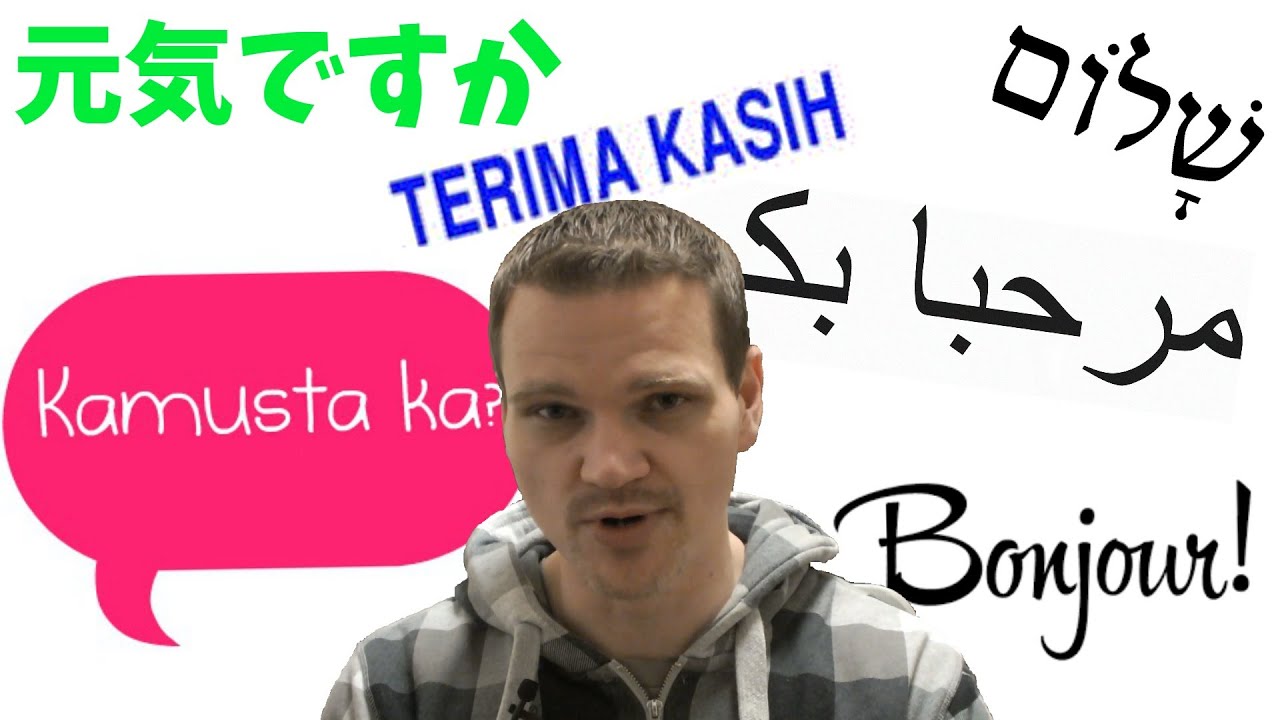Langfocus
One of the challenging things about learning multiple foreign languages is that it`s easy to mix them up, cross wires, and accidentally blend the languages together. How do you keep them distinct so that you can access each of them without (much) interference?
Support Langfocus on Patreon: http://patreon.com/langfocus
http://facebook.com/langfocus
http://instagram.com/langfocus
http://twitter.com/langfocus
http://langfocus.com .(tagsToTranslate)language study(t)polyglot(t)foreign language(t)fluent(t)travel(t)phrases(t)linguist(t)linguistics(t)phonology(t)pronunciation(t)vocabulary(t)grammar(t)verb tense(t)multilingual(t)language retention




how do you explain that i was confused between chinese and Spanish? someone talked to me in chinese and I wanted to reply in Chinese and vis-versa
Sarkozky – Sarkozy?)) Why Sarkozky?))
3:40 such a interesting theory. I had a French oral exam (after 1 year of this subject in French) and i remembered how my professor used to pronounce the terms and tried to do it the same way. and an assistant told me: « at the beginning i thought you were a very slowly native speaker . » (she probably found out I wasn’t, when i couldn’t remember a very easy word). anyway never tried that when i actually speak to people
also what really helps to learn a language is when you re forced to do translations or you have to read articles in a language (wikipedia)
So Paul, how many languages could you speak exactly?
I like the immersion method of going to a country where the new language for you is a native language there. Then finding a language school to learn that language and only being allowed to use that language when communicating. It takes about three weeks or so to let your thinking make sense out of all of the newer and strange phonetics. The one day it all starts to make sense and off you are launched into the paradigm of this new language for you. I say this because that is how I learned to be fluent in another language, plus the rate of success of other students.
Of course with the internet one may be able to achieve the same results in learning another language. There are so many free sources available. A bilingual dictionary is very helpful. For me at least I needed to spend at least three hours a day with mixed facets of a language to learn it well. An hour or less on grammar, an or so on a live broadcast, an hour or so listening to songs or reading simple literature (cartoons, picture stories or poems.) Then lastly writing in the new language I was learning. As an added bonus was to find a native speaker in the areas where I live.
Paul, you seem like a clear thinker and a lucid speaker, aside from an avid learner of foreign languages. But I have noticed a gap in your suggestions. Take phonology, for example, as you have explained above. It would be rewarding and interesting for your followers on YouTube to have you actually use the languages you say that you have studied. All the suggestions, at least the ones that I've listened to, are in English. If you say that you'd emulate Zarkosy's French accent, why don''t you switch to French and use it as an example?
"and the smell of my baguette"
I came to a point where I wasn't really fluent in any language. I just speak some mish-mash of Filipino, English, Spanish, and Chinese. ?
Speaks german is complicated.
I speak Italian and I’m also learning Spanish and the two languages are similar so I would sometimes say a word in Italian when I was trying to speak Spanish.
I love my strange linguistic abomination of Spanengleutsch, which consists of Spanish, English and German. Responding to my English speaking family with sí, qué or ja is almost subconscious at this point
Learn with different letters n shit just saved 9 min
Context switching can be tricky sometimes when learning foreign languages
Hahahaha, had happend to me that I'm speacking englis, and suddently je comence à parler français
our door never locks / me and my daughter speaking between each other a mixture of three languages .i came from one country now live in america my hubby is mexican without english my daughter born in US . nobody who is not us will understand us ..my coworkers is used that often i speak mandrake to them .I `v heard that it is bad and you should not allow yourself or acostume your child to mix even 2 languages that it is very very bad.. i dont see what is so bad .. in my head everything mixed . and now is in hers too
انا cannot parle Spanish
This was really helpful. They may be abstract tips, but they are useful. Your point about the phonetics is really helpful: muscle memory is so powerful.
Amei
Ill occasionally mix up the French and English word pronunciations for similar words, like for/pour, and other cognates and loans due to the similarity
Any chance of doing a video on hyper polygots?
In this video you speak more slowly, I could follow much better. 😉
I'm not learning multiple languages (I'm a native English speaker, learning Swedish) but I studied Spanish for 7 years in school (unwillingly) and my family speaks Spanish, I however do not speak Spanish with any level of fluency, but any time I try to think of a word in Spanish it always originally comes out in Swedish. I'm confusing a language I don't even want to learn with the language i'm learning.
I had to speak to a hotel owner in Greece, but he only knew German. When I tried to use my German, I really had to concentrate because I kept coming out with Turkish (having been living in Ankara for ten months). I think it's because it was the only language I explored in an immersive situation versus textbook learning. My brain reverted to my next fluent language (fluent in the words I know anyway) as a path of least resistance, maybe.
This is especially tough for me because I speak English along with Spanish, Italian and French sometimes I get very confused
I'm a native English speaker who speaks Chinese and I never have to think about switching to Chinese (sometimes I even think in Chinese) and I don't need to translate speech as I already understand it but I may give these tips to some of my friends, thanks 🙂
Wanna watch a video of you speaking Arabic ?
good advice you are too creative
Paul! There are similarities between Hebrew and German, phonologically speaking.
I imagine that I am a badass spy who works for secret services and I should disguise myself by speaking like locals in my target language. It works for me.
My senior year of high school, I had study hall sixth hour and Spanish seventh hour. I would study Korean during study hall and then start mixing Spanish and Korean seventh hour. Then on the bus, I’d always start speaking in Spanish to the bus driver on accident.
Kalau aq ckp English like this I feel different for some reason. Aq skrg dok belajaq bahasa Jerman kerana sbb² yang aq tak tau napa. So yeah.
Edit: Edit aq sbb a misspelling…
my problem is with the idiomatic expressions. not exactly with the accent, pronounciantion.
I am following the same method and it realy works.
Excellent video. Thank you so much
Thank You.
God Bless You.
ive often thought Israelis sound sort french, especially the noises the make between words when speaking in english, the ehh….. sound.
The first point is very useful.
For English I did it mimicking Hitchens 🙂
(Improved my accent considerably after getting my degrees in English)
I am Russian, and I speak Spanish and English, and I agree 100% with you when you talk about the devotion. You just have to stick to the language you are speaking, despite the difficulties it may cause in the communication. I've started studying French, I hope I won't mix it with Spanish only because they are Romance languages
It's funny because my uncle who is Cantonese moved to America recently and whenever he gets flustered he starts to speak loudly in Mandarin even if he's talking to an American that only speaks English. Mandarin is already a second language for him and he isn't fluent in that either, so I guess when he's nervous he just gets the two "foreign languages" mixed up.